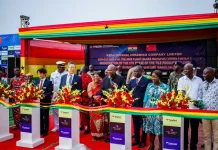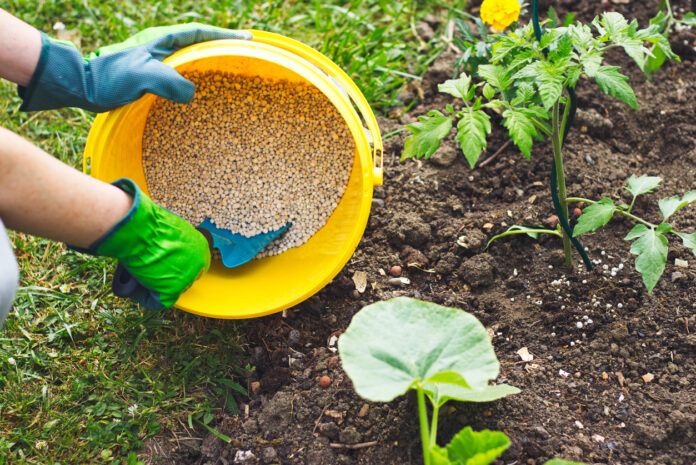We write to you from the Ghana Agricultural and Rural Development Journalists Association (GARDJA), petitioning your good office to reform the mode of operation of the Fertiliser Subsidy Programme and put farmers at the center of the scheme. This will ensure efficiency and transparency in the programme.
As media practitioners working within the agricultural space, we spent the latter part of 2020 and the early part of this year, gathering perspectives from farmers across the country on what their major challenges that need attention are. And the issue of fertilizer subsidy has emerged top on the list of farmers’ major concerns.
We gather that annually, the government allocates about 207 million Ghana Cedis for the scheme to import fertilisers, which are subsequently supposed to be sold to farmers at 50% of the original market price. But the farmers say they are not benefiting, raising questions about where exactly the subsidized fertilisers go. An average of three out of every four farmers across the country we have engaged is not benefitting from the subsidy scheme.
There is so much that we’ve heard in our engagements with farmers on why they are not benefitting from the scheme. Alleged corruption, poor management, outright stealing and smuggling are but a few of the factors. We were shocked at recent disclosures by the Planting for Food and Jobs Secretariat that Ghana lost a whopping 120 million Ghana Cedis from unaccounted for subsidized fertilizers, diversion of coupons and smuggling in the 2017 and 2018 planting seasons alone.
This is obviously a threat to the sustainability of the fertilizer subsidy scheme and a threat to the nation’s food security as a whole. Productivity on a lot of our farms remains low and that is obviously a source of worry. Increased application of fertilisers remains key if we will see better productivity on our farm fields.
Honourable Minister, you have also recently acknowledged how farmers sometimes travel from the northern part of the country to Accra to sit outside your office and beg for coupons to go use to purchase the subsidized fertilisers. Majority of them don’t get because unscrupulous persons have connived with saboteurs to rather steal these discount coupons from farmers. They then turn around and sell these subsidized fertilisers to farmers at higher prices or smuggle them out of the country.
These crimes must stop. We have learnt very dishearteningly that although the distribution guidelines allow maximum purchase of not more than 15 bags per farmer, this directive is being breached for the benefit of politically connected people in the districts. Even non-farmers are able to acquire subsidized fertilisers because of weak administration of the programme. Now, prospective beneficiaries don’t have to prove they are farmers before getting the subsidized fertilisers. This is really sad.
We’ve also heard in our engagements that some officers at the Ministry of Food and Agriculture are part of the problem. They don’t only participate actively in the alleged stealing, but also sometimes even allegedly charge local fertiliser distributors exorbitant fees before giving them clearance to sell the subsidized fertilisers. Some farmers also claim the quality and weight of the subsidised fertilizers are not equal to that of the standard ones.
Some farmers again claim the subsidy being given is only about 30% of the standard market price and actually does not equal the 50% subsidy government claims it is giving. Other complaints include claims that even the criteria for selecting the qualified fertiliser companies for them to be given allocations to import and distribute remains a mystery as its all shrouded in secrecy. Bidding processes are always expedited on the blindside of major players in the sector. The programme risks collapse if these concerns are not addressed as soon as practicable.
We will thus make the following recommendations for your very good office to consider as a way to sustain the scheme;
• Set up a committee to review the operations of the Fertiliser Subsidy Programme since it was launched in 2008. The committee should evaluate the modus operandi of the scheme and make appropriate recommendations for changes for the benefit of ordinary farmers. You can then subsequently work with your team to implement the recommendations.
• Put farmers at the center of the programme. There exist several farmer groups including the Peasant Farmers Association of Ghana, National Farmers and Fishermen Award Winners Association, Ghana National Farmers and Fishermen Association, among others, which have members across the country and well-structured management systems at the regional and district levels. Coordinate the management of the entire subsidy scheme (from fertilizer import bidding contracts to distribution) with these farmer groups so they can ensure the right beneficiaries are getting them.
• Use your good office to work with your colleague Minister for Interior and Attorney General to bring those who have been involved in the smuggling and theft of subsidized fertilisers to book, so this serves as a deterrent to others.
We all can’t wait any much longer for a well thought through, coordinated and efficient roll out of measures to sanitize the Fertilizer Subsidy Programme. Ghanaian tax payers cannot continue losing money to an opaque scheme and farmers cannot wait any longer for things to be done right.
Thank you
Yours faithfully,
Richmond Frimpong (0268909020)
President
Joseph Opoku Gakpo (0247714498)
Deputy General Secretary,
GARDJA





































